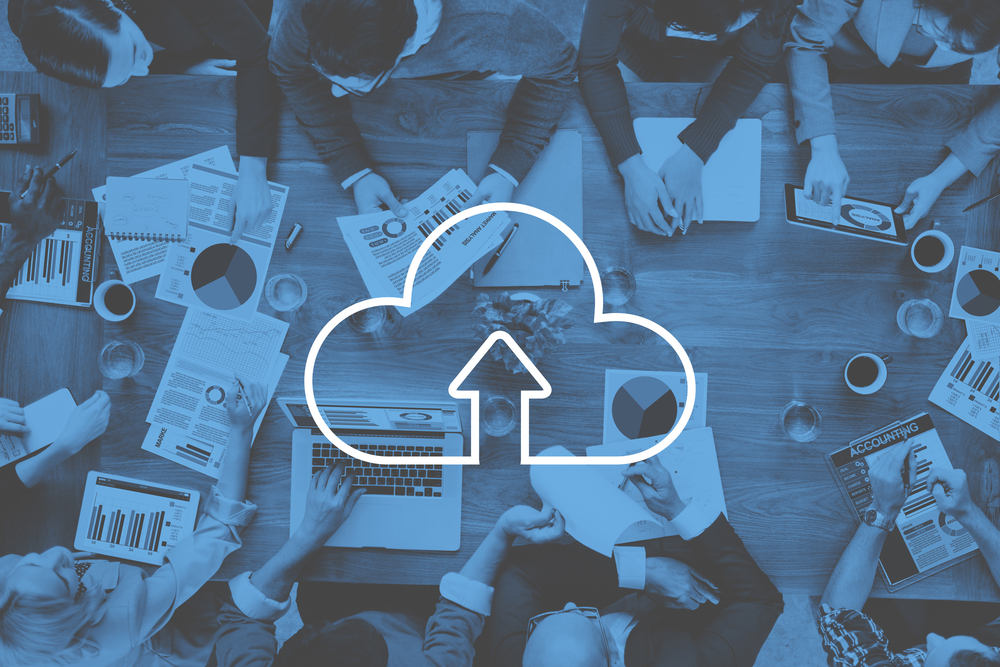Cloud technology has been the go-to solution for businesses for a couple of decades now. However, this trend does not seem to cease. According to Gartner, the public cloud services market is expected to grow 17 percent in 2020, bringing its total to $266.4 billion in comparison to $227.8 billion in 2019.
So, what is it about cloud that makes it the preferred solution for business operations? It is the fact that cloud technology makes possible the level of flexibility and mobility that was not possible in traditional IT solutions.
Like most industries, the accounting sector has also gradually started realizing the perks that cloud technology brings to the table. Given the critical and dynamic nature of accounting operations, the accounting professionals need all the help they can get to improve productivity and eliminate errors. Here is where cloud technology comes to the rescue.
Let us discuss how cloud technology is revolutionizing the accounting sector.
1. Anytime, Anywhere Access
Be it keeping track of payments, invoices, or bills, the accountants always need to be in proximity to their accounting process. However, this is not feasible in the case of the legacy computer systems. The accountants have to sit behind a desk all day to accomplish tasks. Moreover, if they have to attend a meeting or are out for a conference, all the tasks remain pending.
By adopting cloud technology, accountants get an unparalleled level of mobility. Cloud enables them to access their accounting software and data from any location at any time with the help of internet-enabled portable devices like smartphones, laptops, and tablets. This enables them to get a hold on their accounting process whenever and wherever required.
2. Cost-Effective Solution
No matter how advanced a technological solution is, if it cannot offer cost-effective solutions to businesses, then its chances of being adopted are rare. Businesses are always on the lookout for affordable solutions that also fulfill their requirements. Cloud technology passes with flying colors on both fronts.
In the case of an on-premise IT setup, the high-end hardware needs to be purchased, mounted, and maintained. This calls for a large chunk of the budget that the accounting firms can otherwise utilize for vital operations like customer service.
Cloud technology, on the other hand, offers advanced solutions to the accounting firms while saving both operational and capital expenses. There are various cloud service providers in the market that offer customized accounting solutions. They host the accounting applications and data on their cloud servers situated in remote data centers. By opting for cloud hosting solutions, the accountants can eliminate the setup of costly hardware in their offices.
3. Scalable Infrastructure
One of the most time-consuming and arduous tasks that degrade the efficiency of an accounting firm is the constant need for hardware upgrades. Especially for growing businesses, as the accounting process expands, so does the amount of data and users. They have to buy the hardware in accordance with future requirements. Moreover, there is always an additional requirement of computing resources and processing power during the busy tax season.
Cloud technology is an efficient solution to this issue. It is a virtualized environment where the computing resources can be scaled up or down, without the need for hardware replacement. Moreover, only the resources that the accountants are working on get utilized.
4. Secure Environment
Given the critical and confidential nature of accounting data, it is susceptible to various risks and threats. Firstly, the local system on which the accounting data is stored can malfunction, causing loss of data. Secondly, accounting data can also fall victim to data breaches or cyberattacks. Even if there is an on-premise backup server, any accident like office fire that damages the entire facility can still cause data loss.
However, cloud technology involves a cluster of connected servers accomplishing the tasks simultaneously. Hence, any damage to one server cannot hamper the accounting operations. Moreover, the cloud hosting providers deploy advanced security safeguards like DDoS protection, access control policy, data encryption, and Intrusion Detection/Prevention to ensure that the data is safe from external threats like ransomware and DDoS attacks. The accounting firms can rest assured about the security of their data.
5. Effective Collaboration
One of the hassles of accounting is the flow of documents through the organization. The documents like invoices, receipts, and bills need to be shared with the accounting department. However, this can be done only through emails or the internal network. Moreover, if the document is updated, a new version of it needs to be created. This causes the mismanagement of data.
However, by implementing cloud technology in the accounting process, accountants can collaborate easily with the clients as well as colleagues. As all the data is stored in a centralized location with the feature of remote access, multiple individuals can access the same accounting file simultaneously and make changes to it. This reduces the time taken to send files back and forth via emails. Moreover, it enhances data management by eliminating the multi-versioning of files.
6. Paperless Operations
The traditional accounting practices involved the printing of large volumes of documents on paper. It made the handling and storage of these documents cumbersome. Moreover, it also had disastrous effects on the environment.
Although the usage of paper cannot be avoided entirely, cloud technology has reduced it significantly. Through seamless sharing of files and unlimited storage options, cloud technology has provided a digital workplace for the accountants.
Cloud Is The Future Of Accounting
Cloud technology comes as a pleasant offering for the accounting sector. It offers an optimum level of mobility, flexibility, and security to the accounting process. Moreover, cloud technology saves the infrastructural costs for accounting firms and gives them the option to scale as per requirement.








